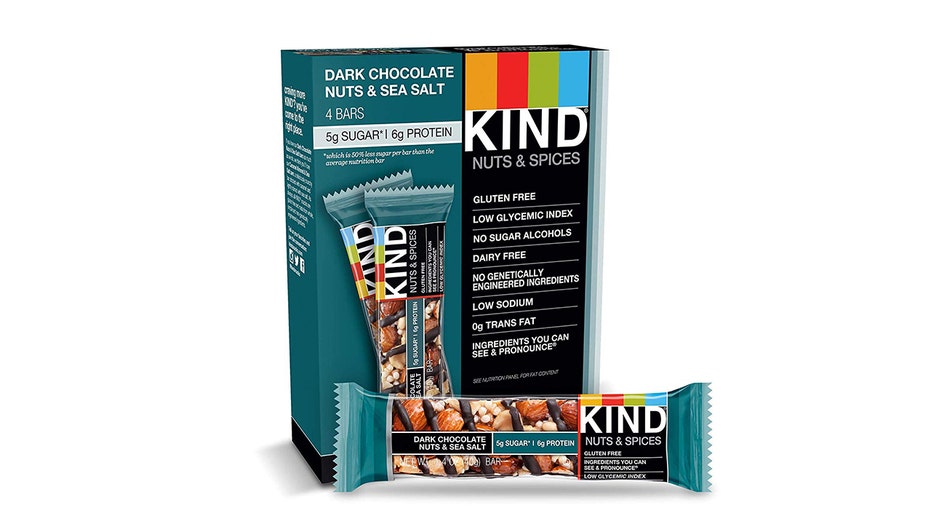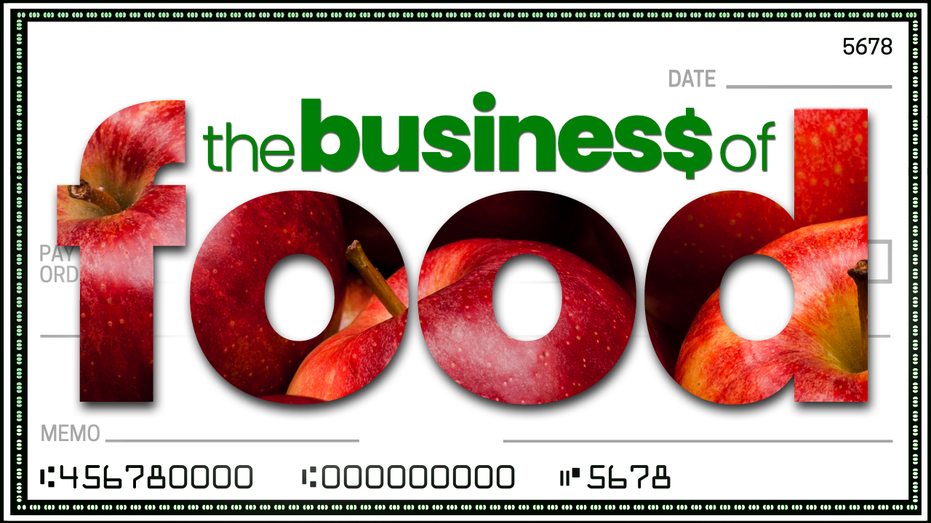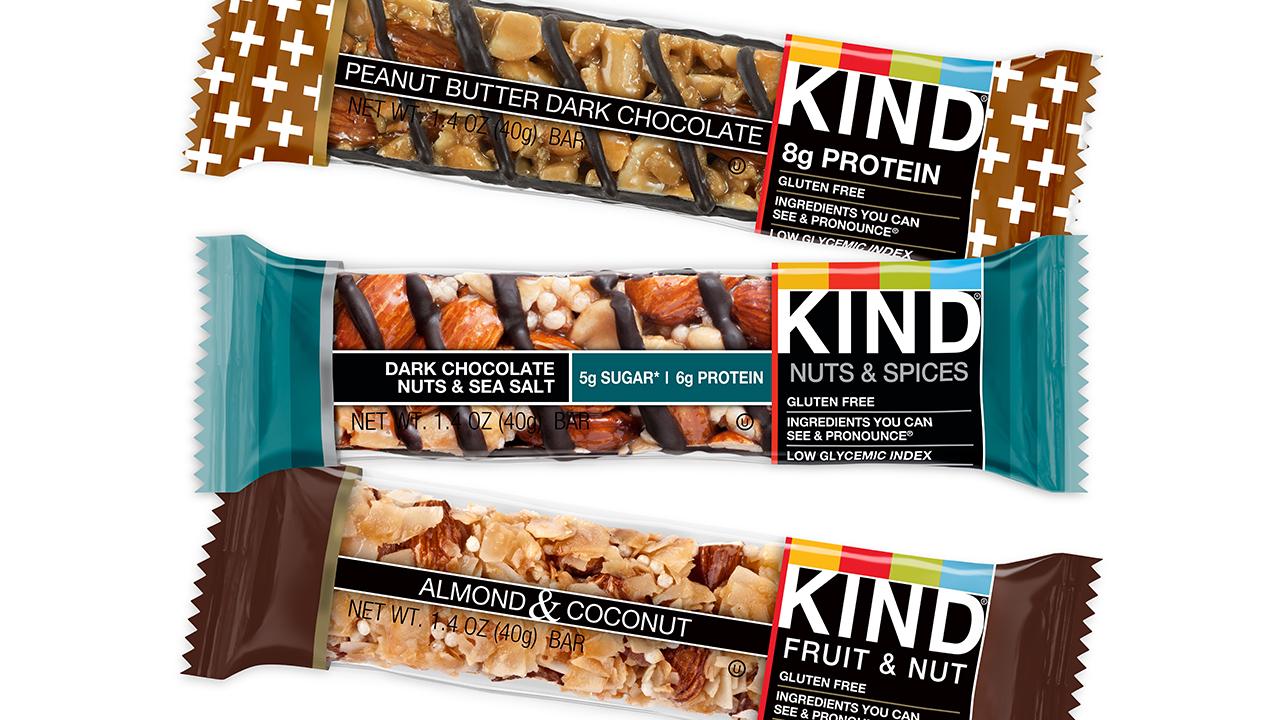Kind enters plant-based ice cream industry
Plant-based ice cream sales are expected to surpass $1 billion globally by 2024
Kind is raising the bar with dessert.
The New York City-based food brand, known for its fruit and nut-packed snack bars, is rolling out plant-based frozen Kind bars nationally this year following a test run at Walmart.
“We made a small limited launch into the freezer aisle last year, and we’re now rolling out nationally this year taking Kind Bars as you know them and developing a version that’s a substitute to ice cream with a creamy almond milk-based bar,” Daniel Lubetzky, founder and executive chairman of Kind, told FOX Business.

KIND is changing its nutrition labels to reflect 20 percent fewer calories in some of its best-selling products.
The snack food brand is breaking into the dairy-free dessert category joining major brands like General Mills, Danone and Talenti. And last year, Unilever-owned Magnum rolled out plant-based dairy-free ice cream bars in a Vegan Almond flavor made with coconut oil and pea protein wrapped in non-dairy Belgian chocolate.
| Ticker | Security | Last | Change | Change % |
|---|---|---|---|---|
| UL | UNILEVER PLC | 72.12 | +0.55 | +0.77% |
| GIS | GENERAL MILLS INC. | 47.87 | -0.50 | -1.03% |
| DANOY | DANONE SA | 16.29 | -0.31 | -1.87% |
Sales of plant-based milk including varieties like soy, almond, oat and others have grown 6 percent over the past year, making up 13 percent of the milk category, while cow’s milk sales have declined 3 percent, according to data from The Good Food Institute. And plant-based ice cream sales are expected to surpass $1 billion globally by 2024 as eaters continue to seek out alternatives to dairy, according to Global Market Insights research. Kind Frozen bars will be under 200 calories.
GROCERY WARS: BEEF, DAIRY FIGHT FOR SHELF SPACE
While Lubetzky is optimistic about breaking into the frozen ice cream space, the brand’s mini snack bars, Kind Minis, are the fastest-growing category within the brand’s snack portfolio. In November, Kind reached the highest-ever food sales on Amazon, surpassing $1 million in revenue in 48 hours, according to the e-commerce performance analytics platform Profitero.
Consumer demand for better-for-you snacks and indulgences is on the rise. Sixty-one percent of adults are aiming to reduce their calorie intake, according to market research from NPD Group. And calories are the second most checked item consumers look for on the label, according to NPD.
On Tuesday, Kind announced it was slashing the calorie count on its product labels by 20 percent, citing research from the United States Department of Agriculture that reveals calories for its main ingredients like almonds and cashews have been miscalculated. It suggests eaters could have been consuming fewer calories than they thought.
IMPOSSIBLE FOODS DEBUTS PLANT-BASED PORK
Researchers at the USDA found that whole nuts, such as almonds and cashews, make up 19 and 16 percent fewer calories, respectively, than previously calculated, as a result of the way our bodies digest fat found in nuts. So Kind is changing the calorie count on its packaging for the majority of its product line, which will have 10 to 30 fewer calories per bar. Its best-selling bar, the Dark Chocolate Nuts & Sea Salt initially containing 200 calories, now has 180 calories per serving. The Caramel Almond and Sea Salt bar, which contained 200 calories previously, will now have 170. The nutrients in each will stay the same.
“Not all calories are created equal. The way we currently calculate the calorie counts into the foods we consume is relying on a 100-year-old system,” Lubetzky said.
With certain tree nuts, like almonds, fewer calories are absorbed by the body than the calories contained in other foods, research from the USDA suggests.
“Nuts remain a nutrient-dense snack, but the number of calories provided in a single serving has been grossly miscalculated,” David Baer, a leading researcher for the USDA said in a statement.
READ MORE ON FOX BUSINESS BY CLICKING HERE

The Business of Food explores the rapidly changing $1.5 trillion food industry every Tuesday on FOX Business.




















